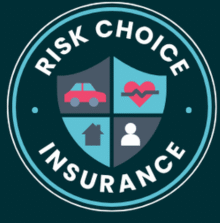
Managing an e-commerce company is among the most profitable endeavours available in the modern digital age. Like every other company, it does, however, carry some hazards and obligations. From product liability to data breaches, financial loss is rather likely. Here e-commerce business insurance finds application.
This all-inclusive guide looks at what e-commerce business insurance is, why it’s important, the kinds of coverage you need, how much it costs, and how to decide which policy best protects your online store.
Describes E-commerce business insurance.
One sort of coverage meant especially for internet stores is e-commerce company insurance. It guards digital companies from a spectrum of hazards, including customer conflicts, property damage, cybercrime, and product liability. Whether your firm is big dropshipping or a tiny Etsy vendor, the proper insurance will help you avoid major financial losses.
Why Do Online Marketers Need Insurance?
Many proprietors of online stores believe running a digital business comes without danger. Actually, though, e-commerce has a unique combination of weaknesses:
Commonly occurring cybersecurity hazards are phishing, hacking, and data breaches.
Product liability: Should a product you market cause injury to someone, you could find yourself legally liable.
Unhappy consumers can file lawsuits over deceptive advertising, delayed orders, or damage.
Natural calamities, theft, or fire can all compromise your actual inventory.
Business interruption: Supply chains disturbed or website outages could result in lost income.
Insurance lets you relax and provides financial safety, therefore freeing you to concentrate on expanding your company.
Categories of E-Commerce Business Insurance
Knowing the several kinds of e-commerce insurance can help you select the appropriate one. Online business entrepreneurs should give these primary coverage options some thought:
1. Standard Liability Insurance
This is basic coverage designed to guard against third-party claims for advertising harm, property damage, or bodily injury. For example, general liability can pay for legal fees should a buyer assert that a product photo violates their copyright.
2. Product Liability Insurance
Product liability insurance covers legal fees, settlements, and medical bills should a product you market cause damage or injury. If you sell food, vitamins, toys, gadgets, or cosmetics, this is very crucial.
3. Cyber Liability Protection
This guards against internet dangers such data leaks and cyberattacks. It pays for data recovery, client notification, legal fees, and PR management.
4. Professional Liability Insurance—Errors & Omissions
Should you offer professional services or advice—such as computer support or consulting—this insurance covers claims resulting from carelessness or insufficient effort.
5. Corporate Property Insurance
This insurance covers damage resulting from fire, theft, vandalism, or natural catastrophes whether you keep goods in an office or warehouse.
6. Interruption of Business Policies
Unexpected incidents like supplier problems or server outages stop your business; this insurance covers lost money during the downtime.
7. Compensation for Workers’ Errors
If you have employees—even part-time—evening’s comp is usually legally mandated. Should an employee suffer an injury on the job, it compensates missed pay and medical expenditures.
8. Inland Water Insurance
This policy guards items in transit or offsite for e-commerce companies who often transport goods.
Factors Affecting E-Commerce Business Insurance Costs

The cost of e-commerce business insurance differs greatly depending on numerous criteria:
Corporate size: Usually, larger companies pay more premiums.
Higher income translates into more risk and more insurance expenses.
Products sold: High-risk items include pills or electronics could raise your premium.
Location: Property insurance could run extra if your warehouse or company is in a high-crime area.
Coverage: More thorough coverage obviously costs more.
Companies with past claims could be subject to increased charges.
Depending on their particular risk, small e-commerce companies could spend anything from $500 to $3,000 yearly on average.
How to Select the Appropriate E-Commerce Insurance Coverage
Selecting the correct insurance coverage calls for thorough analysis of your company’s needs. The following are some guidelines:
Evaluate your hazards: Think about the possible mistakes in your business processes. This will assist you to decide on the kind of coverage required.
Compare quotes: See brokers or use internet tools to evaluate several companies.
Examine the financial stability ratings and client reviews of the insurance to assess her reputation.
Know what isn’t covered by always reading the fine print.
Many providers have business owner’s policies (BOP) that mix several coverages at a discount.
Top Insurance Companies for Online Stores
Although many conventional insurance companies provide e-commerce coverage, here are some well-known options thought to appeal to online stores:
Hiscox provides small company customisable plans.
Next Insurance: Renowned for online simplicity and economy.
Hartford: Offers a broad spectrum of commercial policies.
Perfect for flexible and on-demand coverage is Thimble.
Chubb: Perfect for bigger online companies.
Typical Mistakes to Avoid
Steer clear of these typical mistakes while shopping for e-commerce business insurance:
Underestating your risk: Being overprotected is preferable to underinsured.
Focussing just on cost: Cheaper isn’t always better; think about coverage and support.
Ignoring cyber liability: This is a must-have because cybercrime is on rise.
Ignoring annual reviews: Your insurance needs change along with the size of your company.
FAQs About Business Insurance for E-Commerce
Using sites like Shopify, Amazon, or Etsy, do I still need insurance?
yes. Although these sites provide some protection, they may not cover all hazards including cyber dangers or product liability.
Should I not have insurance?
Without insurance, you might have to pay for legal bills, settlements, or inventory loss out of pocket, so bankrupting your company.
Is it possible to write off online buying insurance on my taxes?
Indeed. Usually, business insurance premiums are deductible from taxes.
When can I start to be covered?
Several internet companies provide same-day coverage and quick prices.
Closing Notes
E-commerce company insurance is a calculated investment in the long-term viability of your online store, not only a formality. Knowing you are covered from both foreseen and unanticipated obstacles will help you to function with confidence.
